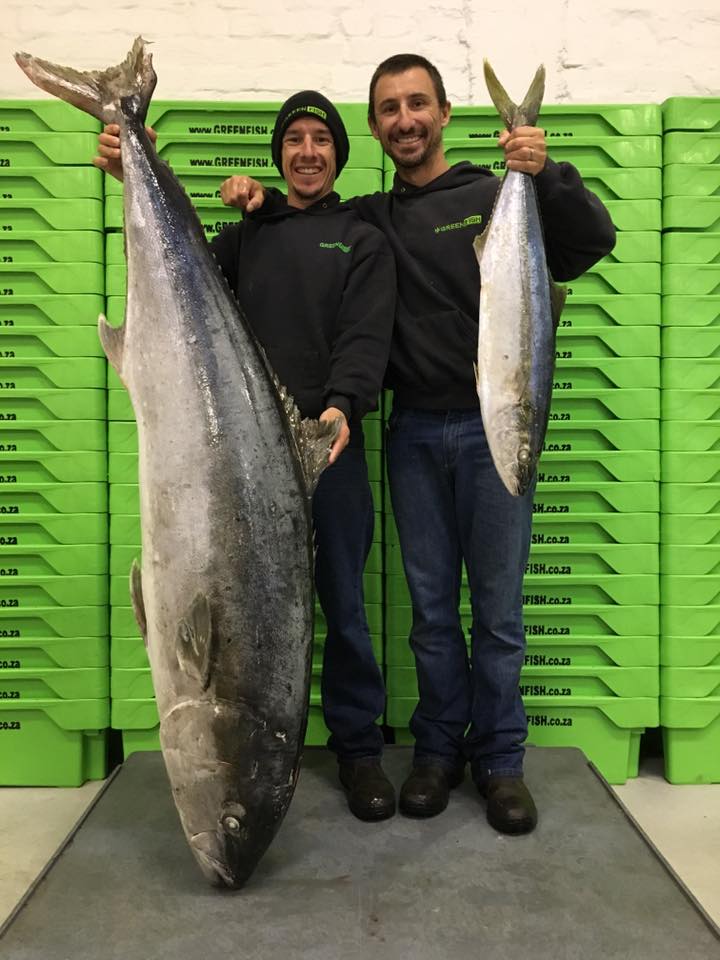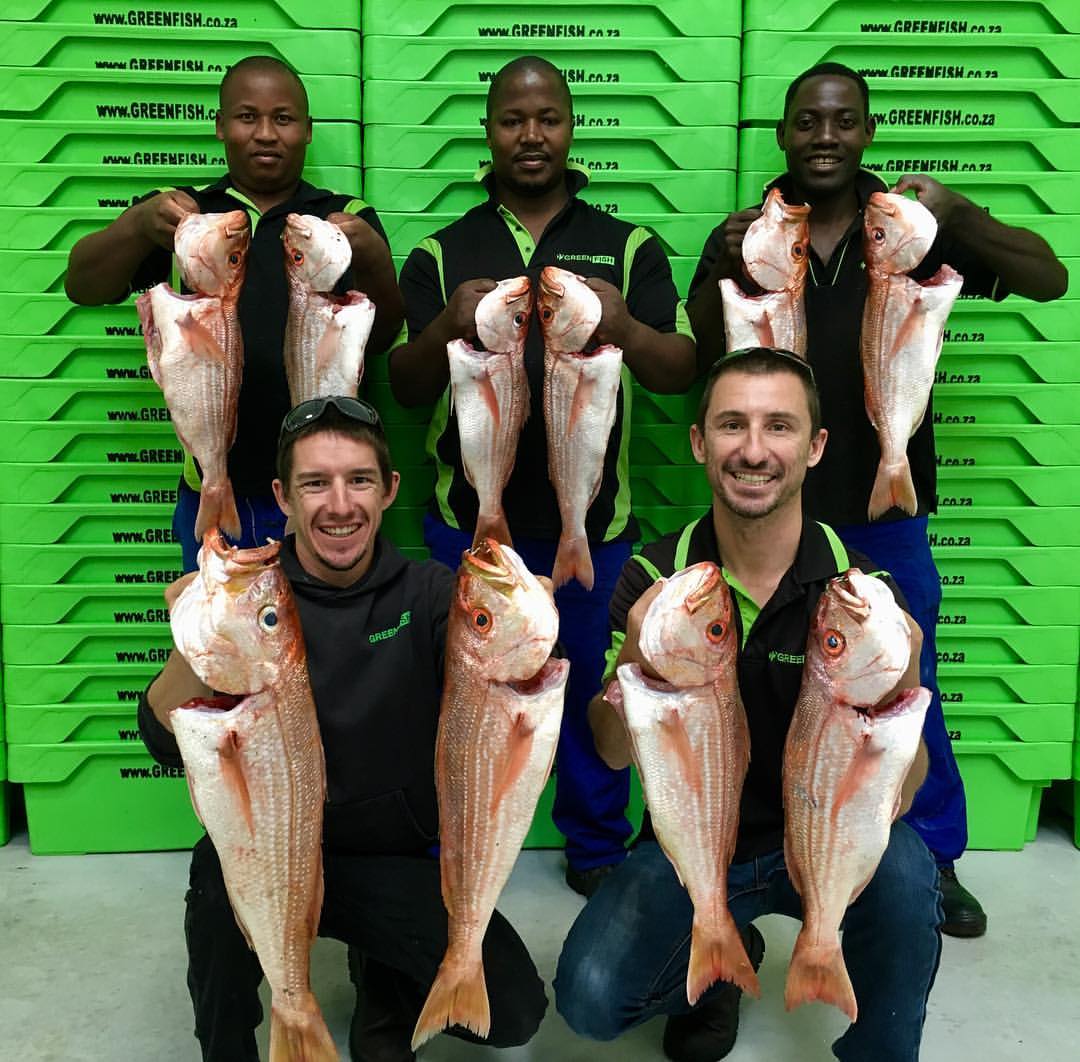By Daliza Jimenez, SSF Hub Community Moderator & Pam Ruiter, Senior Manager of SSF Initiatives at Environmental Defense Fund
Ryan Nienaber is the founding member and owner of Greenfish, a Cape Town, South Africa based family run fishing business that services the restaurant, hospitality and wholesale industry with high quality, seasonal and locally sourced fish and seafood products. We had a chance to sit down with Ryan to learn more about his passion for fishing, his journey as an entrepreneur and how Greenfish adapted to the challenges brought on by COVID-19.
This month’s SSF Highlight has been edited for length. Please click here to watch the full interview and visit Greenfish to learn more about their work.
How long have you been fishing?
I've been fishing since the age of five and this lifelong obsession was kind of born on my fifth birthday when my dad gave me a little fishing kit. It was a little yellow fishing rod and all I wanted to do was go down to the river and catch a fish and I did! I've actually got that photo of my dad and myself on my fifth birthday in my office, it’s a very treasured possession of mine. From there, my brother Andrew and I, you could say “got hooked” and this lifelong obsession really started by going to any little puddle, stream or harbor and just fishing.

Can you tell us more about how you arrived to where you are now? What inspired you to continue pursuing this line of work?
I started catching [fish] for pocket money in high school on small-scale boats going out of Table Bay, primarily to catch snoek — it’s a handline caught fish. And I just did this on weekends while I was at school. What I used to do — because I wasn't very good at catching many like some of the older, more experienced guys — to improve the amount of money I made was take my half and fleck them, which is filleting and salting them. I used to go down to the hospital where my mom worked and sold them to make a little bit extra. I was just a young boy at that time but little did I know that would be the beginning of this lifelong career and that that would be my first footsteps into entrepreneurship, into processing and value adding especially in a small-scale sector.
After [high] school, I started catching tuna because it paid a little bit more and I used my money to fund my studies. I studied architecture and, I think in my third year or my fourth year, my lecturers came to me and said, “Listen Ryan, what's the deal? You’re never really in class, you’re always out fishing. What's the story?” And I said, “I'm kind of stuck because I go to sea to make money to pay for the studies. If I don't go to sea, I don't make money. If I'm in class, I'm not at sea.” And they said, “Well, you're going to have to come up with something.” And I did.
How does your passion for fishing translate into your work and owning Greenfish?
I founded Greenfish in 2010 and one of the real benefits was starting our own factory. I think it's really the passion and love that's propelled the business. Both my brother and I are totally obsessed with fishing, diving, surfing — anything to do with the water.
I'll never forget, there is a small sushi shop called Sushi Nori. Quinsy, the owner, told me — and this is almost 20 years ago — it’s not a very big shop, she can only use one tuna every ten days. And I said that's fine, you know, as long as I get the sale and now, almost 20 years later, I'm still delivering one tuna every 10 days. I took my wife there for one of our first dates. She’s seen my wife and I get together in front of her little sushi shop and I've seen her children grow up and it's been really special.
What's been so remarkable is that through fishing, I've been able to travel the world, do what I love and learn in different parts of the world and get different experiences from all parts of the world. It's really broadened my horizon on different styles of fishing, different species, different processing methods and different ways people catch in different areas. I think what really sets Greenfish apart is that we have both the fishing background — how to look out for fish, how to catch them, all the systems on the boat and in the factory — and the customer interactions. We’ve got that full journey, from start to finish and we’re really just telling the story of who we are.

How has Greenfish adapted since the COVID-19 pandemic? What challenges have you overcome?
Fishing is an exceptionally hard job and artisanal style fishing like we are doing is a dying trade. It's very sad because we have long hours of hard work and it's very erratic. Somebody said to me the other day that fishing's kind of the only gambling that's not a sin because you go out there, you spend all this money and you don't know if you're gonna make it back in and it really puts into perspective how much risk and reward there is.
I based 20 years of business on supplying the restaurants and the hospitality trade and that came to a halt immediately. Our president went on TV and said, “We're locking down our country in three days' time” and that was it — from being a hundred percent into the trade, within three days we totally turned our business around and started supplying fish to home consumers.
It was an incredible transition because our country went into lockdown on Thursday evening and on Friday, Saturday and Sunday my cousin Louis and I built up a website. On Monday morning I went on our Instagram and said, “How's it going South Africa? I'm Ryan. I'm going to sell you a piece of tuna and I'm going to deliver it to your door,” and the next minute we got an order! All of these sorts of challenges — “How do we do this? How do we package it? How do we deliver it?” — were all of a sudden in our way. And this was in a time when you couldn't just go to a packaging shop because everybody was closed.
It was a tremendous first month, we got so well supported. South Africans have always eaten fish on an anniversary or when they go to restaurants and we’re not really finding people eating fish as a weekday meal. So my wife created a blog called The Fish Wife and we’ve been trying to remove the fear of cooking and eating fish and encouraging people to ask questions because not all fish are equal. I think we’ve got almost two and a half thousand reviews from the public saying, “We've never eaten seafood like this before, it's handled beautifully and we can see the care and attention that's been put into it,” and for the first time in my life — with the adaptation of our business and servicing the public — I'm truly feeling like an exceptional fishmonger that people are appreciating. I really love what I do and I really believe in what I do and the little differences we are making.
###
Greenfish is proud to be part of the global solution to overfishing by encouraging more sustainable seafood choices from responsibly managed legal sources that are environmentally sound. They are committed to ensuring that all of their seafood is sourced from legal fishing operations and traceable back to its point of origin. Check out The International Pole and Line Foundation’s (IPNLF) blog, Choose Your Tuna, to support fishers like Ryan and coastal communities around the world.
This article is part of the SSF Highlights series of articles published regularly to the SSF Hub. To read previous SSF Highlights, follow this link.
